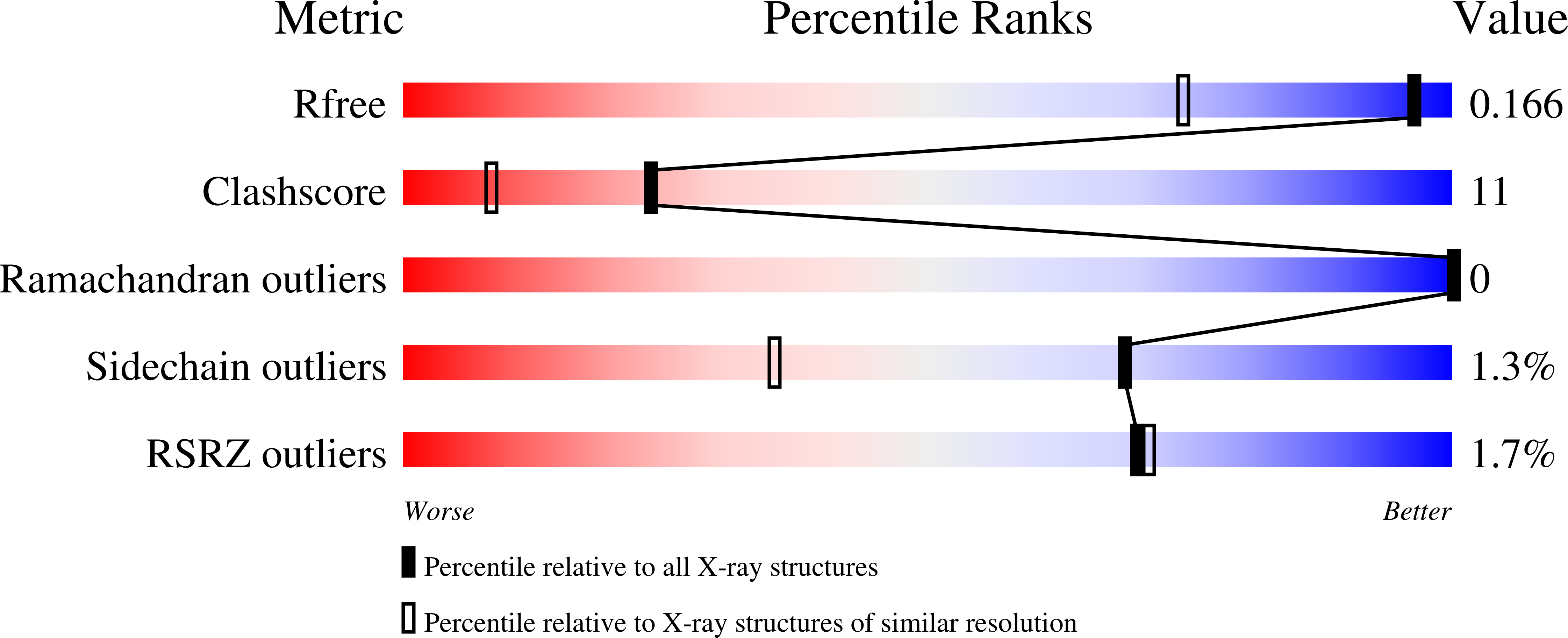Reversible inhibition of Escherichia coli inorganic pyrophosphatase by fluoride: trapped catalytic intermediates in cryo-crystallographic studies
Samygina, V.R., Moiseev, V.M., Rodina, E.V., Vorobyeva, N.N., Popov, A.N., Kurilova, S.A., Nazarova, T.I., Avaeva, S.M., Bartunik, H.D.(2007) J Mol Biol 366: 1305-1317
- PubMed: 17196979
- DOI: https://doi.org/10.1016/j.jmb.2006.11.082
- Primary Citation of Related Structures:
2AU6, 2AU7, 2AU8, 2AU9, 2AUU - PubMed Abstract:
Here, we describe high-resolution X-ray structures of Escherichia coli inorganic pyrophosphatase (E-PPase) complexed with the substrate, magnesium, or manganese pyrophosphate. The structures correspond to steps in the catalytic synthesis of enzyme-bound pyrophosphate (PP(i)) in the presence of fluoride as an inhibitor of hydrolysis. The catalytic reaction intermediates were trapped applying a new method that we developed for initiating hydrolytic activity in the E-PPase crystal. X-ray structures were obtained for three consecutive states of the enzyme in the course of hydrolysis. Comparative analysis of these structures showed that the Mn2+-supported hydrolysis of the phosphoanhydride bond is followed by a fast release of the leaving phosphate from the P1 site. The electrophilic phosphate P2 is trapped in the "down" conformation. Its movement into the "up" position most likely represents the rate-limiting step of Mn2+-supported hydrolysis. We further determined the crystal structure of the Arg43Gln mutant variant of E-PPase complexed with one phosphate and four Mn ions.
Organizational Affiliation:
A.V. Shubnikov Institute of Crystallography, Russian Academy of Sciences, Leninsky Pr. 59, 119333 Moscow, Russia. [email protected]



















